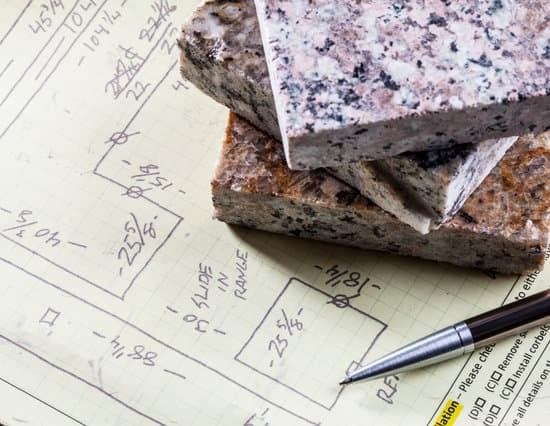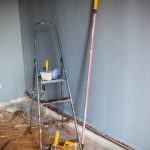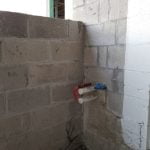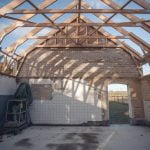Are you wondering, “Can I claim home improvements on my 2018 taxes“? Home improvements can have a significant impact on your taxes, and it’s important to understand the potential deductions and credits available to homeowners. Renovations, upgrades, and energy-efficient improvements to your home may all have tax implications that could benefit you when it comes time to file your taxes.
Home improvements encompass a wide range of projects, from minor repairs to major renovations. But not all home improvement expenses are eligible for tax deductions. It’s crucial for homeowners to understand what types of expenses qualify for tax benefits and how to determine if their specific home improvements meet the criteria set by the IRS. Additionally, keeping proper documentation and records of these expenses is essential for successfully claiming them on your 2018 taxes.
In this article, we will explore the relationship between home improvements and taxes, including eligible expenses, qualifications for deductions and credits, as well as restrictions and limitations that homeowners need to be aware of when considering claiming home improvement expenses on their 2018 tax returns. We will also provide helpful tips and resources for homeowners looking to maximize their tax benefits from their home improvement projects.
Understanding Eligible Home Improvement Expenses
When it comes to home improvement expenses and taxes, it’s important for homeowners to understand what types of expenses are eligible for tax deductions. Eligible home improvement expenses typically include those that increase the value or prolong the life of a property. This can range from major renovations such as adding a new room or upgrading the kitchen, to smaller improvements like installing energy-efficient windows or a new HVAC system.
One key factor in determining eligibility for tax deductions is whether the home improvement is considered a repair or an improvement. While repairs are generally not eligible for tax deductions, improvements that add value to the property and prolong its useful life are often eligible. It’s important for homeowners to keep in mind that cosmetic upgrades, such as painting or landscaping, may not qualify as eligible expenses unless they are part of a larger renovation project.
In addition to physical improvements to the property, certain medical-related home improvements may also be eligible for tax deductions if they are made for medical purposes. This can include adding wheelchair ramps, support bars in bathrooms, or modifications to accommodate individuals with disabilities. Homeowners should consult with a qualified tax professional to determine which specific home improvement expenses qualify for tax deductions in their individual circumstances.
How to Determine if Your Home Improvement Expenses Qualify
When it comes to claiming home improvement expenses on your taxes, determining whether your specific expenses qualify can be a bit tricky. However, there are some guidelines that can help homeowners determine if their home improvement expenses are eligible for tax deductions.
Evaluate the Nature of the Improvement
One of the key factors in determining if your home improvement expenses qualify for tax deductions is evaluating the nature of the improvement itself. Generally, home improvements that add value to your home or prolong its useful life are more likely to qualify for tax deductions. This could include projects such as adding a new bathroom, renovating a kitchen, or installing a new heating and cooling system.
Consider Energy-Efficient Upgrades
Another important consideration is whether the home improvement includes energy-efficient upgrades. The IRS offers tax credits for certain energy-efficient home improvements made in 2018, such as installing solar panels, geothermal heat pumps, or energy-efficient windows and doors. Homeowners should check the specific guidelines provided by the IRS to see if their energy-efficient upgrades qualify for these valuable tax credits.
Consult With a Tax Professional
If you’re unsure about whether your specific home improvement expenses qualify for tax deductions, it’s always best to consult with a qualified tax professional. They can review your individual circumstances and provide guidance on which expenses may be eligible for tax deductions based on current IRS regulations.
By carefully evaluating the nature of the improvement, considering energy-efficient upgrades, and seeking advice from a tax professional when needed, homeowners can determine if their home improvement expenses qualify for potential tax deductions when filing their taxes for the 2018 tax year.
Potential Tax Credits for Energy-Efficient Home Improvements
When it comes to making energy-efficient upgrades to your home, there are potential tax credits available that can help offset the cost of these improvements. These tax credits are designed to incentivize homeowners to make eco-friendly changes that benefit both the environment and their wallets.
Some eligible energy-efficient home improvements that may qualify for tax credits include:
- Installation of solar panels
- Replacement windows and doors
- Insulation upgrades
- High-efficiency heating, cooling, and water systems
To determine if your specific energy-efficient home improvement qualifies for a tax credit, it’s essential to consult the official IRS guidelines or speak with a tax professional. Keep in mind that there may be specific requirements and limitations for each type of improvement, so it’s crucial to stay informed about the eligibility criteria.
It’s important to note that these tax credits have expiration dates and can change from year to year. For the 2018 tax year, homeowners should research and understand the available tax credits for energy-efficient home improvements before filing their taxes. By taking advantage of these incentives, homeowners can not only save money on their taxes but also contribute to a more sustainable future.
Documentation and Record-Keeping Requirements
When it comes to claiming home improvement expenses on your 2018 taxes, proper documentation and record-keeping are crucial. Without the necessary paperwork, you may not be able to substantiate your claims and could face potential issues with the IRS. Here are some important documentation and record-keeping requirements to keep in mind:
- Receipts and Invoices: Make sure to keep all receipts and invoices for the materials and labor costs associated with your home improvements. These documents serve as proof of the expenses you are claiming on your taxes.
- Contracts and Agreements: If you hired contractors or professionals to perform the home improvements, retain copies of any contracts or agreements that outline the scope of work, cost estimates, and payment terms.
- Before and After Photos: Taking before and after photos of the areas in your home that underwent improvements can provide visual evidence of the work that was done. This can be especially useful if you decide to claim certain renovations as increasing the value of your property.
Maintaining organized records is essential for accurately reporting home improvement expenses on your tax return. Whether you file your taxes yourself or have a professional prepare them for you, having all necessary documentation readily available will streamline the process and help ensure that everything is accounted for properly.
Overall, staying organized and keeping thorough records will not only facilitate the tax filing process but also provide peace of mind knowing that you have met all documentation and record-keeping requirements when claiming home improvement expenses on your 2018 taxes. Remember, it’s always better to have more documentation than you think you need, so err on the side of caution when it comes to retaining records related to your home improvements.
Restrictions and Limitations for Claiming Home Improvements
When it comes to claiming home improvements on your taxes, there are certain restrictions and limitations that homeowners need to be aware of. One important restriction to keep in mind is that the IRS generally does not allow you to deduct the costs of home improvements from your taxes. Instead, these expenses are added to the cost basis of your home, which can potentially reduce the amount of any taxable gain when you sell your house in the future.
There are also limitations on the types of home improvement expenses that can be claimed for tax purposes. Generally, only improvements that add value to your home or prolong its useful life are eligible for tax deductions. This means that basic repairs and maintenance expenses typically do not qualify. For example, if you simply repaint a room or fix a leaky faucet, those costs would not be eligible for tax deductions.
Another important limitation to be aware of is the requirement for homeowners to keep thorough documentation and records of their home improvement expenses. The IRS may request proof of these expenditures if you are audited, so it is crucial to retain all receipts, invoices, and other relevant paperwork related to your home improvement projects.
Overall, while there are restrictions and limitations on claiming home improvements on your 2018 taxes, it is still possible to benefit from tax credits for energy-efficient upgrades and potentially lower taxable gains when selling your home in the future. It’s important for homeowners to understand how these restrictions may apply to their specific situation before attempting to claim any deductions for home improvements on their taxes.
| Restrictions and Limitations | Details |
|---|---|
| Deductible Costs | Home improvement costs generally cannot be deducted from taxes but can affect cost basis of home. |
| Eligible Expenses | Only improvements adding value or extending useful life are eligible; basic repairs typically do not qualify. |
| Documentation Requirements | Homeowners must keep thorough records and receipts as proof of expenses in case of an audit. |
How to Claim Home Improvements on Your 2018 Taxes
When it comes to claiming home improvements on your 2018 taxes, the process can seem daunting. However, with the right information and proper documentation, it is entirely possible to receive tax deductions for eligible home improvement expenses. In this section, we will provide a step-by-step guide on how to claim home improvement expenses when filing your taxes for the 2018 tax year.
Evaluate Eligible Home Improvement Expenses
The first step in claiming home improvements on your 2018 taxes is to evaluate which expenses are eligible for tax deductions. Generally, home improvements that increase the value of your property or extend its useful life may qualify for tax deductions. This includes costs associated with renovating a kitchen or bathroom, adding a new room, installing a new heating and cooling system, or making energy-efficient upgrades.
Keep Detailed Records and Documentation
To successfully claim home improvement expenses on your 2018 taxes, it is crucial to keep detailed records and documentation of all related expenses. This includes receipts, invoices, contracts with contractors or service providers, and any other relevant paperwork. These documents will serve as evidence of the expenses incurred and the nature of the improvements made to your home.
File the Proper Tax Forms
When it comes time to file your taxes for the 2018 tax year, you will need to include specific forms related to your home improvement expenses. Depending on the type of improvements made and whether they fall under eligible categories for tax deductions or credits, you may need to fill out additional forms such as Form 5695 (Residential Energy Credits) for energy-efficient upgrades.
Additionally, it’s important to accurately report all relevant information about your home improvement expenses on Schedule A (Form 1040) if you plan to itemize deductions. Be sure to consult with a tax professional if you have any doubts or questions about which forms to use.
Additional Resources and Links for Further Information
In conclusion, claiming home improvements on your 2018 taxes can potentially provide valuable tax deductions and credits for eligible expenses. It is important for homeowners to understand what types of home improvements qualify, as well as the documentation and record-keeping requirements for claiming these expenses. Additionally, there are potential tax credits available for making energy-efficient upgrades to your home in 2018, providing further incentive for homeowners to invest in energy-efficient improvements.
For those looking for more information on claiming home improvement expenses on their 2018 taxes, the IRS offers official resources and additional information that can be found through the provided links. These resources can help homeowners navigate the process of determining eligibility, documenting expenses, and ultimately claiming these deductions and credits on their tax returns.
By taking advantage of these resources and understanding the limitations and restrictions that may apply, homeowners can make informed decisions about whether or not to claim home improvement expenses on their 2018 taxes.
Overall, claiming home improvements on your 2018 taxes requires careful consideration and adherence to specific guidelines set forth by the IRS. With the potential for valuable tax deductions and credits, it is worth exploring whether your home improvement expenses qualify and how to properly claim them when filing your taxes.
Utilizing the additional resources and links provided by the IRS can help homeowners make informed decisions about their eligibility and ensure they are maximizing their potential tax benefits from eligible home improvement expenses.
Frequently Asked Questions
How Far Back Can You Write Off Home Improvements?
You can generally write off home improvements as long as you own the property and use it as your primary residence. However, the time limit for writing off home improvements depends on whether it is a repair or an improvement, as well as the tax laws in effect at the time.
Typically, repairs can be deducted in the year they are completed, while improvements must be depreciated over several years.
What Home Improvements Are Not Tax-Deductible?
Not all home improvements are tax-deductible. Generally, any repairs or maintenance that simply keep your home in good working condition would not be tax-deductible. This could include things like painting, fixing leaks, or replacing broken appliances. Additionally, any improvements that increase the value of your home rather than maintaining its current condition would also not be tax-deductible.
Can You Claim Home Remodeling on Your Income Tax Return?
You may be able to claim certain home remodeling expenses on your income tax return if they qualify as a medical expense deduction or a business expense deduction. For example, if you’re remodeling your home to make it more accessible for someone with disabilities or for a business purpose, you may be able to claim those expenses as deductions on your tax return.
It’s important to consult a tax professional to determine which specific remodeling expenses can be claimed on your income tax return.

I’m thrilled to have you here as a part of the Remodeling Top community. This is where my journey as an architect and remodeling enthusiast intersects with your passion for transforming houses into dream homes.





